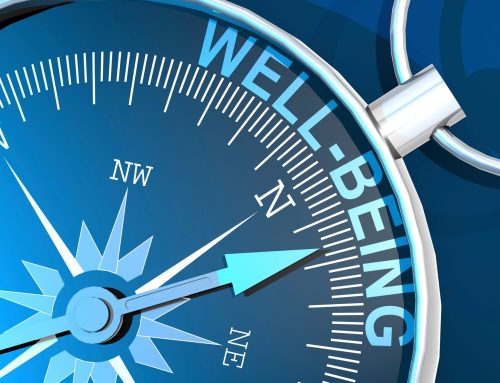Stress
The more I hurry, the behind-er I get. I heard that quote many times as I grew up. There is no doubt in my mind, however, that we are even more stressed out and overwhelmed now than we’ve ever been. Sometimes I wonder why. Do we feel better about ourselves when we work until we drop? Is there a cost to our health?
Let take an overview of what happens to our bodies if we continue to live in a stress-filled life
We are intelligently designed to handle a massive amount of stress in our daily life. Our bodies have what’s called a ‘fight or flight’ mode in which the hypothalamus in the brain signals the body that there is a danger (stress) that needs to be addressed. The hypothalamus sends signals to our adrenal glands, through the pituitary gland, to produce hormones like cortisol, epinephrine and norepinaphrine. Those hormones communicate with almost all our other systems to initiate what is called the stress response. Our heart rate and blood pressure increases, glucose is dumped into the cells for quick energy, our pupils dilate and our muscles are primed for action. In this mode, digestion and reproductive function are diminished. This is the sympathetic nervous system at work. When our immediate stress is over, the body switches back to its parasympathetic state which calms down the body systems and returns everything back to normal.
When we live in chronic stress mode, the body finds it difficult to switch off this stress response. The system gets tired and ceases to work effectively after a while. All the symptoms mentioned above never seem to go away and we develop new, stress-induced illnesses. The adrenal system, which is closely connected to the thyroid, gets overwhelmed and exhausted. Our thyroid gland ceases to function effectively. Most of the chronic diseases that plague the modern world have a connection to stress overload.
There are numerous kinds of stressors we encounter in our world. Some are self-inflicted, so to speak. If we don’t say ‘no’ to projects and responsibilities that we simply cannot take on, we always sacrifice our health eventually. Other stresses can’t really be avoided. Those are stressors like a sick family member, a high-needs baby or child and a stressful workplace. Oddly enough, there are ‘good’ stressors too, like playing your favourite sport, going on vacation or celebrating retirement.
As an iridologist, I learned that the irises of a person’s eyes can genetically ‘predict’ the constitution we were born with. Some people seem to be born with a strong constitution. They can handle everything that is thrown at them, seemingly, with ease. These people often don’t see the impending illness or acute heart attack. They often don’t notice, or don’t have symptoms telling them to slow down and take it easy.
Other people seem to be more susceptible to stress, toxins and pathogens. They tend to get more fatigued and feel unwell in stressful situations. These people have what is sometimes referred to as a poor constitution.
Motivation and Stress
Have you ever thought of trying to differentiate between motivation and stress? As an example, the CEO of a company will likely have a strong constitution. They will be highly motivated to succeed and always be able to see the bigger picture. They will handle stress like a juggler handles balls in the air. These people need a particular amount of stress to challenge and motivate them. It takes a huge amount of stress to topple them over.
For all people, however, when there is little or no stress or ‘ motivation’, they are unable to get up off the couch. They can’t find the time to eat right or exercise. They have difficulty holding down a job because they don’t get enough ‘stress’ to energize them. That is the other end of the spectrum.
We have to aspire to live and work in the middle ground of this bell curve. There should be just enough stress/motivation to energize and inspire us to keep working hard at something. There should be just enough exercise to keep our cardiovascular system healthy and our morale high. That’s when we function at highest capacity.
Adaptation and Stress
Inevitably, we probably won’t make it through life without having a few hard knocks thrown our way. One of the most important things to do, in my experience is, first of all, recognize that as difficult as this challenge is, the worst of it will pass eventually. When you really come to embrace that perspective, you begin to acknowledge that this is a hard, hard time, but there will be another side to this coin at some point.
The next step is to be thankful, for one, that the body is attempting to cushion the blow by initiating our stress response. People often feel like their bodies are somehow failing them when they are starting to exhibit symptoms of illness and stress. When this happens, it can be a time to reflect on why the body is reacting the way it is and to be grateful for the impressive mechanism that, firstly, cautions us to potential disease and, secondly, allows us to adapt to stress and move on.
The third step is to implement some practices that can minimize the stress response and help support the body. Here are a few examples:
1. Take just a few minutes every day or two and do something that relaxes you. This can be a walk, a run, a good book, meditation or a bath. Forcing yourself to slow down and be calm and present automatically switches the body back into its parasympathetic state.
2. Make a concerted effort to get enough sleep at night. Sleep is when the body relaxes and finds healing and repair. When we son’t give ourselves that time, the healing and repair cannot take place effectively and so, instead of waking up rested and ready to face the day, we feel tired and drained.
3. Eat well. In a stressful state, we get more depleted in vital minerals and vitamins that the body needs as its building blocks for every function that occurs.
4. Add specific supplements and herbals that are a boost to a system that is run down. B-complex vitamins or a good high quality multi-vitamin is important because the body has probably used up all its reserves at that point. An extra boost of magnesium, Vitamin D and Vitamin C and other antioxidants are beneficial as well. As far as herbals, you want to use herbs that are supportive tonics to the nervous system and adaptogens that help the body adapt to stress.




Leave A Comment